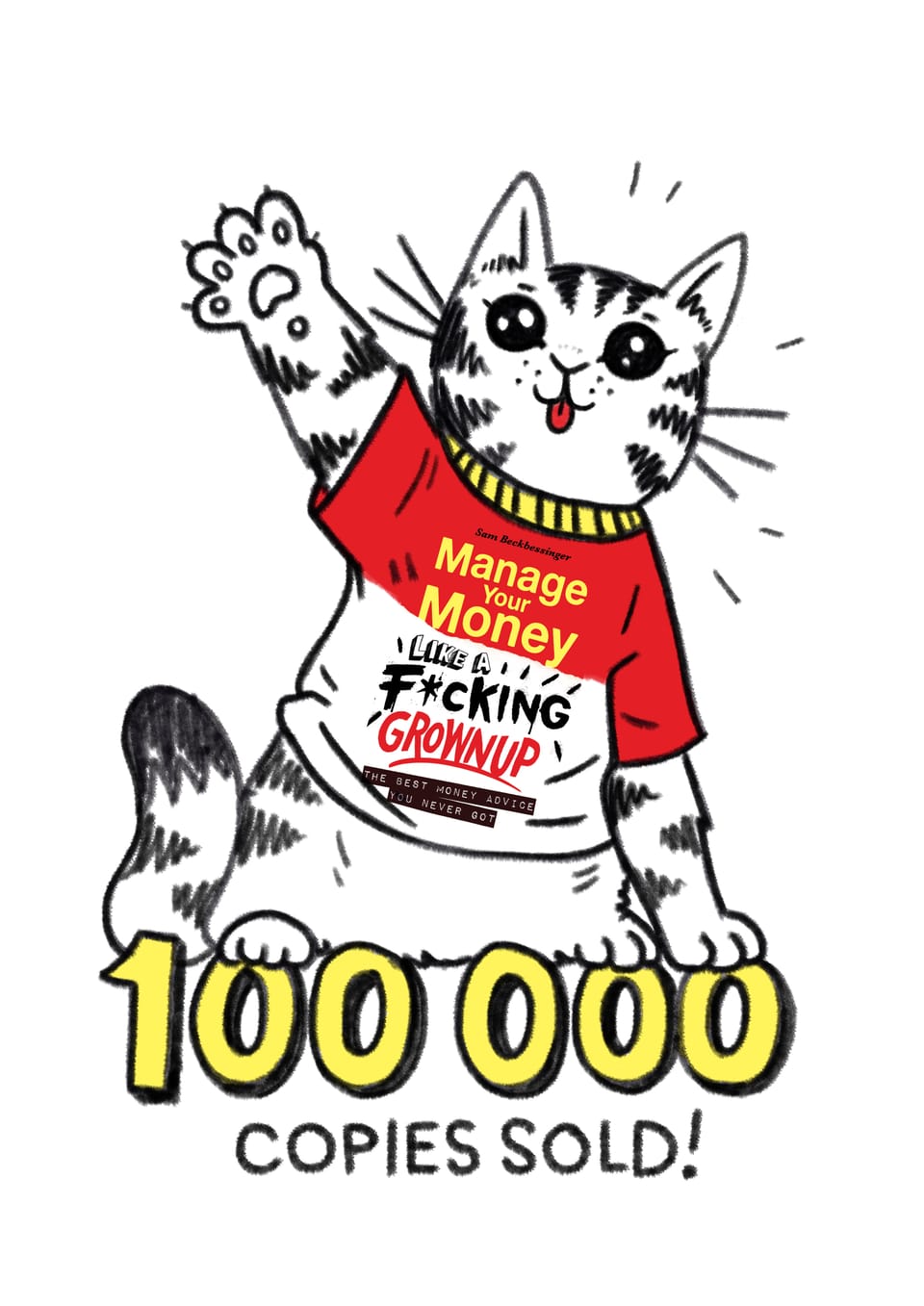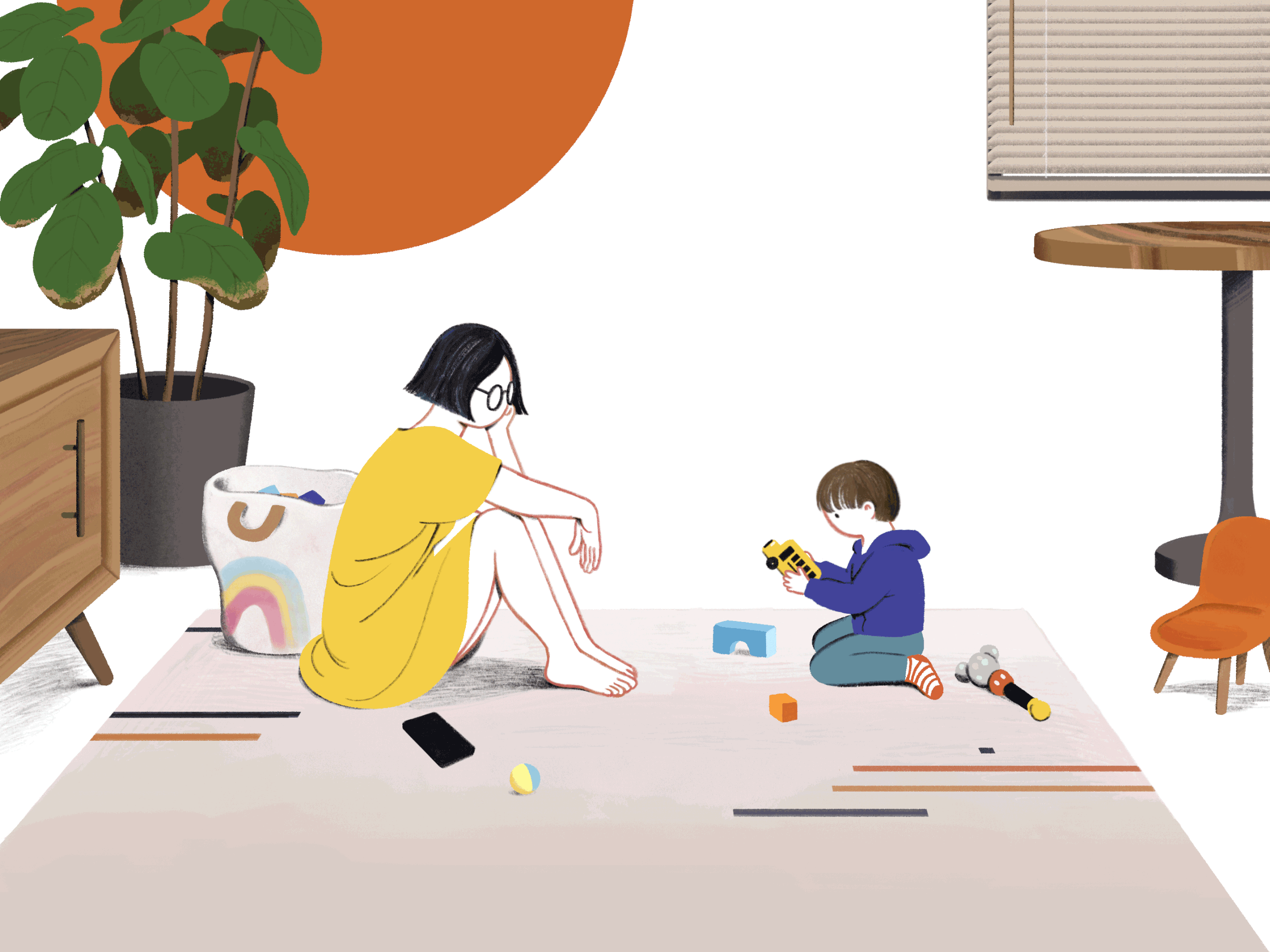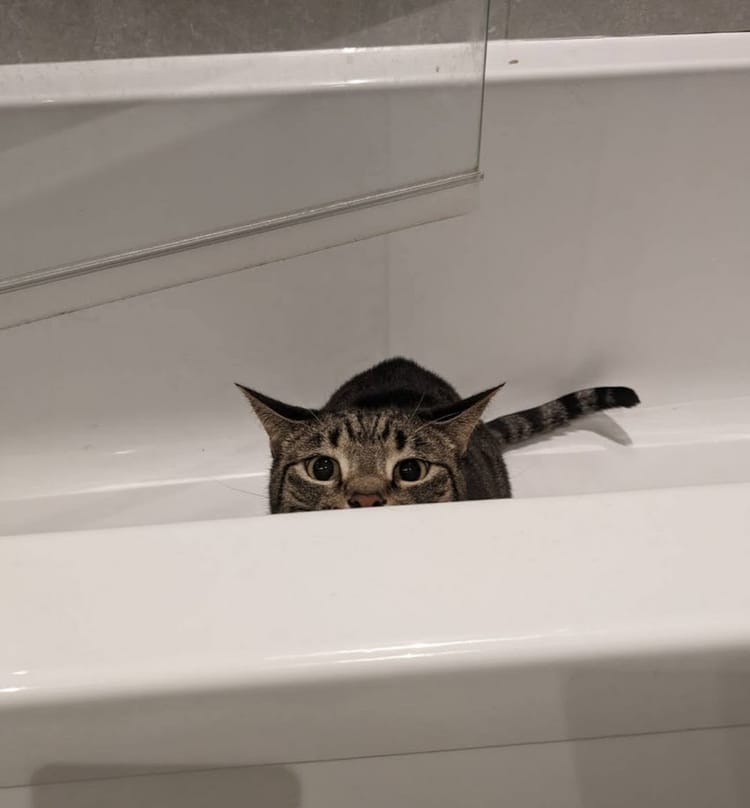100,000 copies later

Hello loves!
In 2015, I wrote a blog post on Medium that changed my life. It was a five-part essay called "How to Manage Your Money Like a Fucking Grownup", a simple summary of the personal finance lessons I'd learned the very hard way. It was a silly thing with a silly title, full of GIFs, and I never expected it to take over my life for several years. I'm so glad it did.
I didn't really get to celebrate when the book came out. My dad was dying and it was the worst year of my life, and that whole time is a blur to me now. But we've just sold the 100,000th copy in South Africa, and that feels like a good excuse to celebrate it now!
It's still incredibly funny to me that I - a person who was notoriously terrible with money for most of my 20s - am now best-known for writing a money book. But I'm damn proud of that silly thing, because of all the people who've told me what it's meant to them.
So here's a very-2015-internet-GIF toast to all the people who made this happen: to my publishers Ester and Jeremy, to Nanna and Kelly and Matt and Jean-Marie and Georgina and John and LB and Claire, to the booksellers, and to the entire magnificent squad at Jonathan Ball, thank you. And cheers to all of you, too, for riding shotgun on this rollercoaster 🥂

You go, little book baby!
Here are five other things that have been on my mind this week.
1 - Doom Loop - Dream Nails
Playing on repeat this week has been the new album from my fave gen-Z queercore punk band Dream Nails, specifically the joyful track "Femme Boi" and "Sometimes I Do Get Lonely, Yeah", an empathetic take on incel culture.
2 - SA Expats Podcast interview
I had a great chat with Jonathan Warncke on the South African Ex-Pats podcast recently, talking about how the British are basically hobbits.
3- Friendaholic by Elizabeth Day
[Friendship] is the least biological, organic, instinctive, gregarious and necessary … the least natural of loves. - C. S. Lewis
Research about friendship tells us that we replace half of our friends every seven years, and yet so little has been written about the ways we make and lose friends. I recently loved Friendaholic by Elizabeth Day, with its focus on how to kindly end bad friendships, and the value in doing so.
Day boldly structures the book around her own relationships, devoting each chapter to a study of a particular friendship, some of which ended dramatically. From exploring why a certain friendship flourished or unravelled, she draws out insights about the nature of friendship itself. She is brave enough to interview those friends (when she can) and ask them about her own failings in those relationships, gradually exposing herself as a "friendaholic", someone who confuses friendliness with friendship, who manically collects new friends, who clings to people who are horrible to her, and who ends up - as she describes it - "spending all my time trying to satisfy everyone who asked things of me, while almost never seeing the friends I loved the most."
The truth, she argues, is that each of us has a finite number of "friendship slots" in our lives, in concentric circles of closeness. Setting boundaries and letting bad friendships go is the only way you can treat your close friendships with the integrity they deserve. "The end of a friendship," as she concludes, "does not necessarily make you a bad friend."
In addition to some pragmatic advice and helpful scripts for dealing with difficult friendship situations, the book takes some amusing detours, for instance this digression into the long and ignoble history of ghosting (historically known as "cutting"):
By 1898, E. Cobham Brewer had gone to the trouble of identifying different kinds of ‘cut’ in his Dictionary of Phrase and Fable. The ‘cut direct’, he wrote, was ‘to stare an acquaintance in the face and pretend not to know him’. The ‘cut indirect’, ‘to look another way, and pretend not to see him’. The ‘cut sublime’ was ‘to admire the top of some small edifice or the clouds of heaven till the person cut has passed by’. And finally, ‘the cut infernal’ was ‘to stop and adjust your boots till the party has gone past’.
Savage!
If you need more scripts for drawing boundaries with difficult people, Melissa Urban's The Book of Boundaries is full of them.
4 - The Murderbot Diaries

I'm not usually a hard sci-fi gal, but I've been tearing through this wonderful series about a half-human half-robot security cyborg (who calls itself Murderbot) who manages to hack into its governor chip and develop free will, which it uses to ... um, watch soap operas.
But, by watching all these soap operas, Murderbot develops empathy! And then it starts to care about humans, even - gag - become friends with some of them, which is terribly inconvenient when you are a Murderbot.
I mean, what a premise. The first book (All Systems Red) is a novella you can finish in a couple of hours, and it's so much fun.
5 - Is My Toddler a Stochastic Parrot?
Finally, I adored this illustrated New Yorker essay about a cartoonist becoming obsessed with ChatGPT while watching her toddler learn to speak (as she so charmingly puts it, "the world races to develop sophisticated large language models, while a small language model unfurls itself in my home"). In unfolds into a discussion about our humanness, which is also our animalness - the parts of us which are not language, like our ability to want and to love. It definitely made my eyes a little misty.

If the topic of how humans learn to speak interests you, I highly recommend The Articulate Mammal by Jean Aitchison, which I first read as a textbook in second-year Linguistics but have re-read many times since then out of pure fascination.
Enjoy the weekend, loves! I'm wishing you bubbly beverages, free will and friendship.
Sam






Member discussion